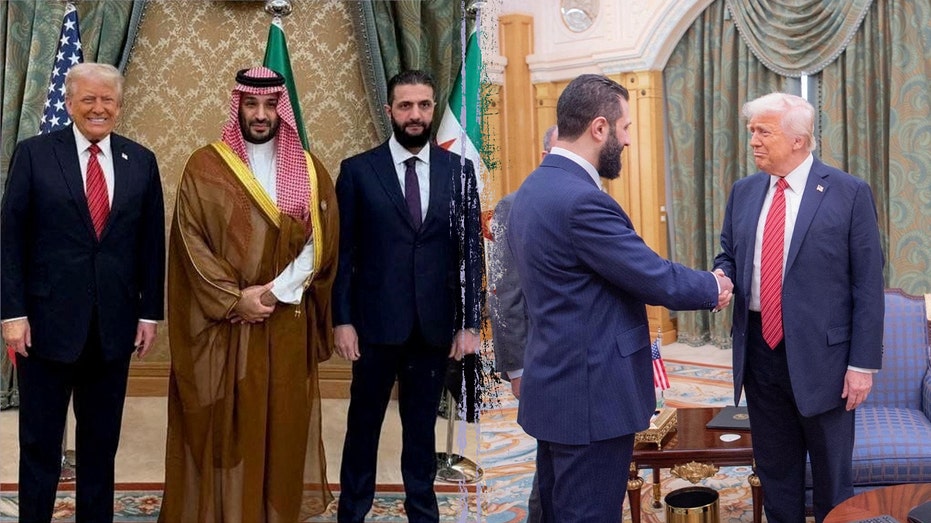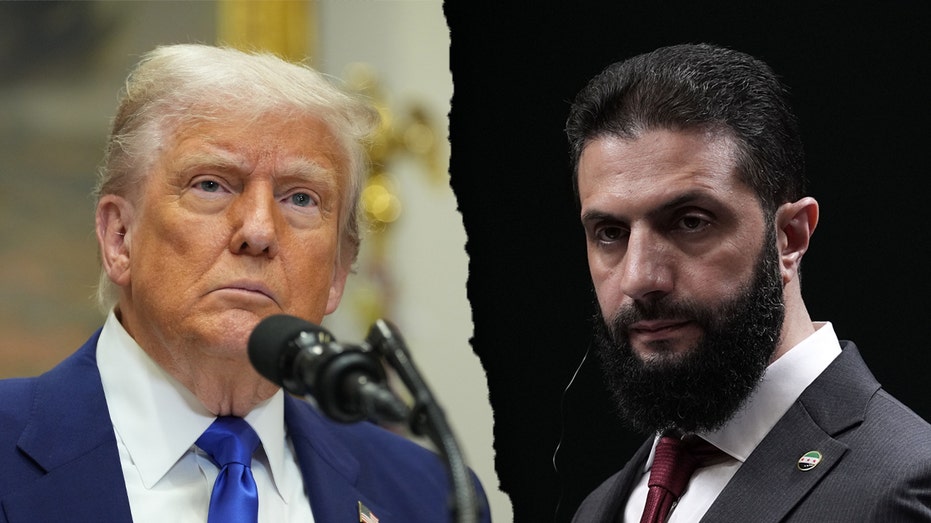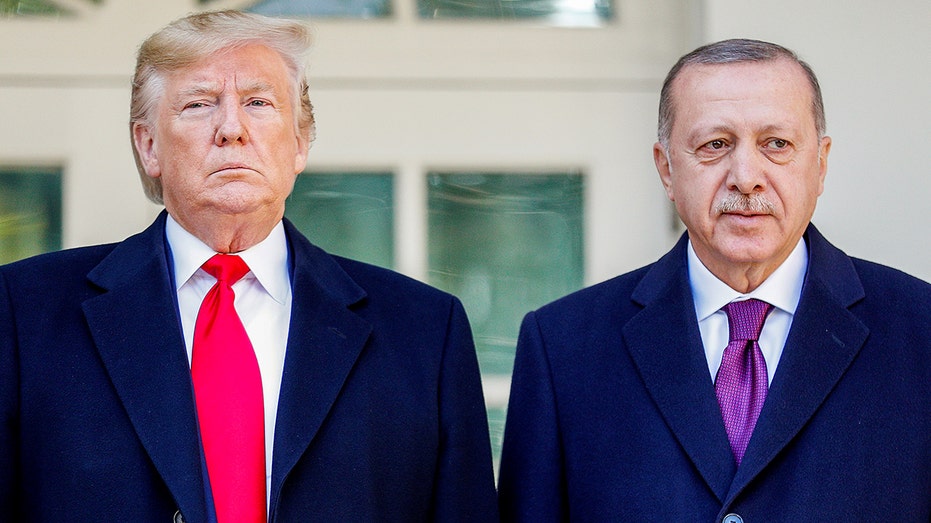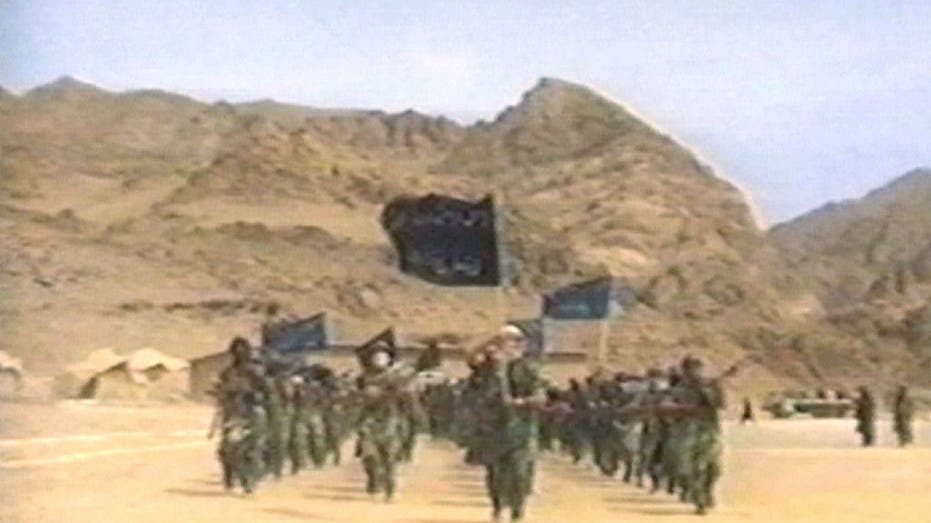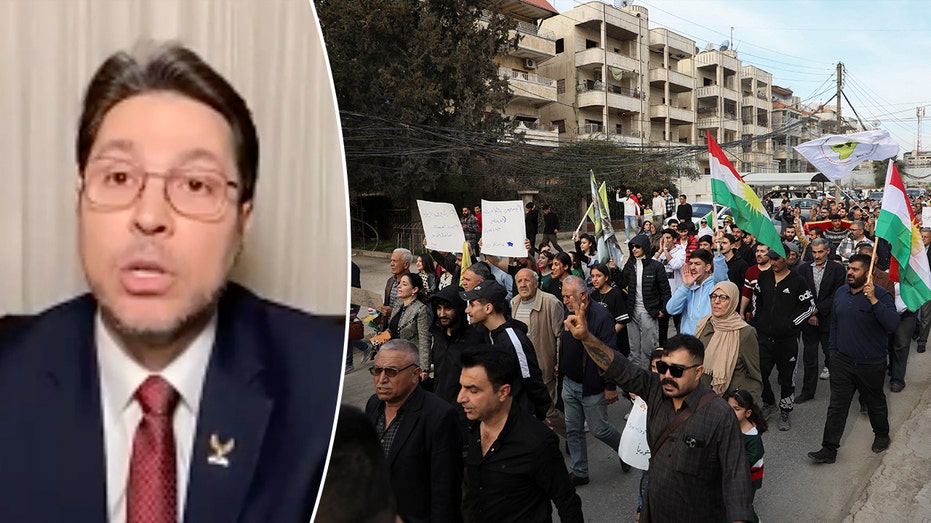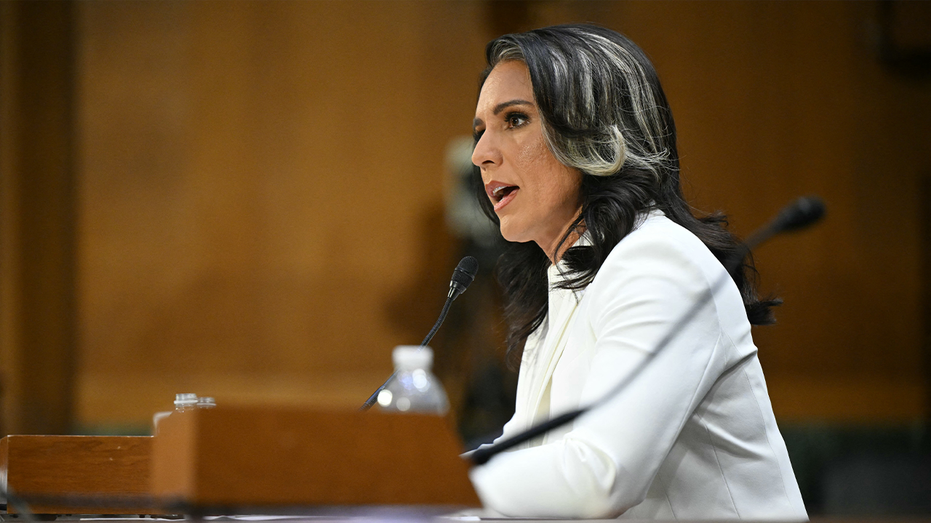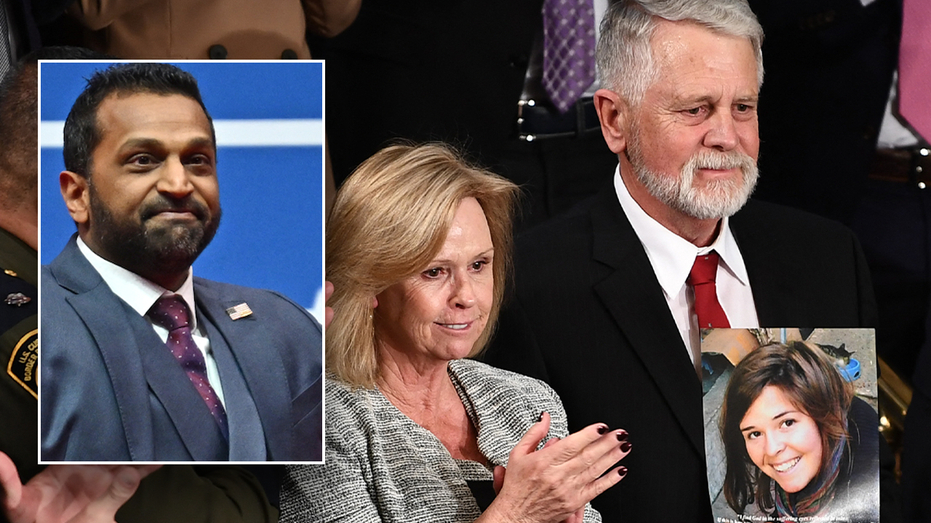Trump wraps momentous Middle East trip with economic deals, Syria sanctions relief and warning to Iran
President Donald Trump on Friday wrapped up a momentous week in the Middle East and is headed home having finished the final leg of his three-nation trip to the UAE.
While the trip, which first included stops in Saudi Arabia and then Qatar, was expected to be largely economically focused with massive investment deals secured with Riyadh, Doha and Abu Dhabi, the president also made geopolitical shockwaves by lifting decades-long sanctions on Syria, issuing another warning to Iran, and downplaying hard fought peace talks between Ukraine and Russia, which Moscow confirmed at the last moment would not be attended by Russian President Valdimir Putin.
Here's a look at what happened this week:
TRUMP SIGNS 'STRATEGIC ECONOMIC PARTNERSHIP' WITH SAUDI ARABIA
Ahead of his trip to the Gulf, the president said he intended to return home with at least $1 trillion in trade and investment deals – though he far outstripped this apparent goal.
While in Saudi Arabia, Trump signed a $600 billion "strategic economic partnership" agreement with Crown Prince Mohammed bin Salman, which will see Riyadh invest in U.S. AI data centers and energy infrastructure, investment in "cutting-edge transformative technologies in both countries" and a whopping $142 billion defense package – which the White House claimed is the "largest defense sales agreement in history."
The president suggested the deal could near $1 trillion in the months to come and generate up to 2 million U.S. jobs.
Trump also secured a big deal in Qatar with a $1.2 trillion "economic exchange" with Doha that included a purchase of 210 Boeing jets by state-owned Qatar Airways for $96 billion, as well as energy infrastructure agreements and an investment in state-of-the-art quantum technologies and workforce development."
The deal in Qatar was overshadowed by the controversial announcement that Qatar wanted to "gift" Trump a new Air Force One jet.
The president also expanded on a $1.4 trillion deal brokered with the UAE in March and announced an additional $200 billion "in commercial deals" between Washington and Abu Dhabi.
TRUMP OFFERS IRAN CHOICE: DROP NUCLEAR WEAPONS OR FACE 'MAXIMUM PRESSURE'
Trump addressed one major geopolitical issue not only plaguing Washington’s politics but the Middle East as a whole – Iran and its pursuit of a nuclear weapon.
While nations like Saudi Arabia have long stood in opposition to Iran and its support of state-sponsored terrorism, the UAE and Qatar have increasingly looked to normalize relations with Tehran in an effort to stabilize the region.
But Trump used his visit to hone in on Washington’s determination to ensure Iran does not develop a nuclear weapon.
"If Iran’s leadership rejects the olive branch and continues to attack their neighbors, then we will have no choice but to inflict massive maximum pressure," Trump said during an address in Saudi Arabia. "The choice is theirs to make."
Trump harshly criticized Iran's leadership and Iranian representatives did not respond to Fox News Digital’s questions over whether the president’s rhetoric could negatively impact the negotiations.
"If only the Iranian regime had focused on building their nation up instead of tearing the region down," Trump said. "Yet I'm here today not merely to condemn the past chaos of Iran's leaders, but to offer them a new path and a much better path toward a far better and more hopeful future.
"In the case of Iran, I have never believed in having permanent enemies," he added.
TRUMP ASKS SYRIA TO JOIN ABRAHAM ACCORDS, NORMALIZE TIES WITH ISRAEL IN RETURN FOR SANCTIONS RELIEF
Trump took the international community by surprise, including some in his administration, according to reports, when he announced the U.S. would reverse a decades-old policy of sanctions on Syria.
The U.S. first implemented sanctions on Damascus in 1979 when it designated it a State Sponsor of Terrorism.
But following the fall of the Bashar al-Assad regime and the takeover by Hay'at Tahrir al-Sham – which is a U.S. and U.N.-designated terrorist organization – Trump argued on Wednesday the country should be given a chance to recover.
"We are currently exploring normalizing relations with Syria's new government," Trump said.
Trump met with Syria’s leader, President Ahmed Al-Sharaa, in Saudi Arabia and confirmed that Secretary of State Marco Rubio would also meet with the Syrian foreign minister in Turkey this week.
"I am also ordering the cessation of sanctions against Syria to give them a fresh start. It gives them a chance for greatness, as the sanctions were really crippling," he added.
"It's not going to be easy," Trump said in reference to rebuilding Syria and addressing the ongoing fighting that still persists in the country. "It gives them a good, strong chance. And it was my honor to do so."
TRUMP TO SKIP RUSSIA-UKRAINE PEACE TALKS, CALLS ZELENSKYY THE ‘GREATEST SALESMAN, MAYBE IN HISTORY’
Trump raised eyebrows earlier this week when he made the surprise announcement that he was considering traveling to Turkey from the UAE to participate in the Ukraine-Russia peace talks.
But Russia refused to say whether Putin would in fact be traveling to Ankara, where Ukrainian President Volodymyr Zelenskyy had intended to visit to start hashing out a solution to end Russia’s three-year-long invasion.
On Thursday, the Kremlin confirmed Putin would not participate in peace negotiations, which renewed questions over his seriousness in ending the war.
However, Trump downplayed Putin’s refusal to participate in the talks and suggested it was due to a schedule miscommunication.
"Look, nothing's going to happen until Putin and I get together. OK?" Trump said apparently annoyed over the question as to whether he was disappointed Putin would not participate in the talks. "He was going to go, but he thought I was going to go. He wasn't going if I wasn't there.
"I don't believe anything's going to happen, whether you like it or not, until he and I get together" he added, suggesting the Thursday talks in Ankara are not expected to accomplish much. "But we're going to have to get it solved because too many people are dying."
Despite Qatar being a leading player in negotiations for an end to Israel’s deadly military operations in the Gaza Strip and the return of all 58 hostages still held there, the president did not directly comment on current efforts to end the war.
Instead, he doubled down on his previous suggestion that the U.S. should own the Palestinian territory, despite Middle Eastern nations, including Saudi Arabia, Qatar and UAE, repeatedly calling for a two-state solution as defined by U.N. borders.
Trump said he has seen "aerial shots where, I mean, there's practically no building standing. It's not like you're trying to save something. There's no buildings. People are living under the rubble of buildings that collapsed, which is not acceptable."
"I want to see that be a freedom zone. And if it's necessary, I think I'd be proud to have the United States have it, take it, make it a freedom zone. Let some good things happen," he added in reference to his idea that also calls for the removal of more than 2 million Palestinians.
Palestinians and Arab nations have rejected this idea and have largely backed an Egyptian proposal for the reconstruction of Gaza Strip. EU nations and the U.N. have also backed the $53 billion proposal.

